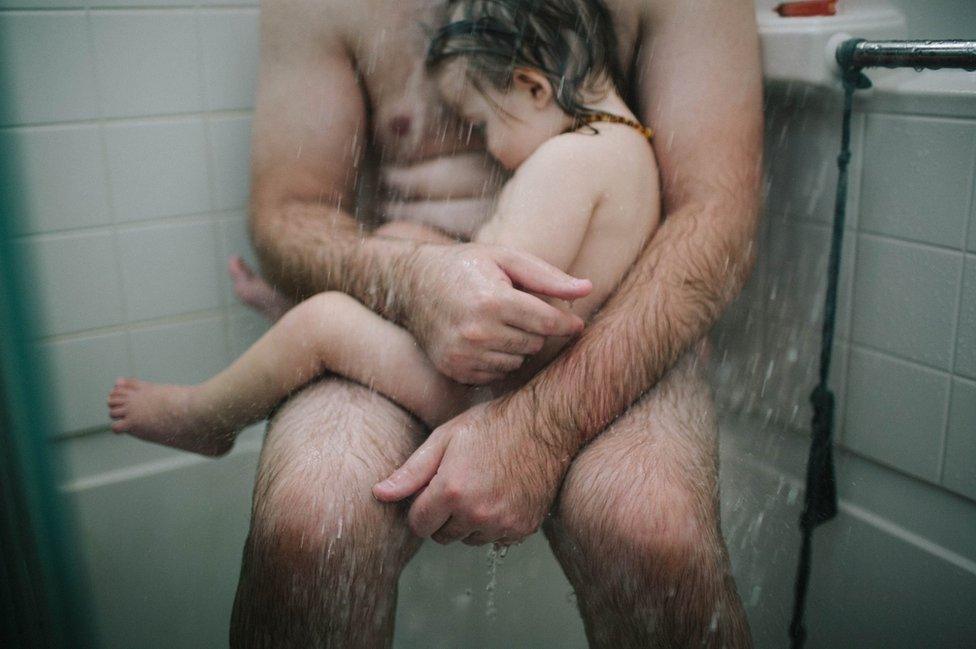Fighting the curse of the blessers
- Published

A graduate tweeted this photo to show what young women could achieve without a blesser
You may have heard of the hashtag #blessed, it's often seen on Instagram next to beautiful pictures of family, travel and shopping; used to show how lucky people think their lives are. But the phrase has recently taken on a very different meaning in South Africa.
After some women posted photos of gifts from partners claiming they were "blessed" people started asking who was "blessing" them. Soon "blesser" became a term for someone who gives money and gifts as part of a relationship - the sort of person traditionally referred to as a sugar daddy.

This meme shows the sort of gift a blesser might leave for one of his blessees

This cartoon shows how a blesser is judged by the cash that he flashes
Blesser has been so widely used on social media over the last month that a new joke has taken off "when a girl sneezes these days you can't even say 'bless you' in case she gets the wrong idea."
However, as the phrase has taken off, it has also kick-started a brand new debate about this age old practice. The hashtag #antiblessers trended this week on South African twitter as thousands of people began to criticise blessers and blessees. Some users posted comments like "real men don't buy girls" while a graduate called Nkamogeleng posted a photo of her degree ceremony saying "When young women are busy searching for blessers we out here (graduating)".
While a blesser can technically be male or female and of any age, many of those using #antiblessers were most concerned about older men lavishing gifts on young girls. One South African vlogger posted a YouTube video titled "Blessers are ruining our world", external in which she expressed concerns about hearing 13-year-old girls discussing blessers on their way home from school.
This issue is so serious that when the South African health minister Aaron Motsoaledi announced a major new anti-HIV campaign last week, he specifically included some economic measures aimed at helping girls between 15 and 24, which he hopes will help tackle the effects of blessers. Mr Motsoaledi told BBC Trending that as young women in that age-group have far higher rates of HIV infection than their young male counterparts it indicates intergenerational sex must form one part of the problem.
Mr Motsoaledi also suggested that young women from poorer backgrounds were more at risk of being targeted and exploited by blessers, particularly those who had lost parents as a result of HIV and AIDS. "Apart from the issue of who takes care of you… it's just the issue of who mentors you, who speaks to you every day?" he said.
While many are trying to halt the practise of blessing, under the right circumstances it does have supporters. Blesserfinder is a group that helps to arrange meetings between those happy to offer money with those looking to be blessed. Their spokesperson Ditshego says he's seen some of those using #antiblessers also using his site to find a partner. He thinks money will always be a factor in relationships, and until the government try and tackle the levels of poverty and inequality in the country there will always be a demand for his service.
Blog by Kate Lamble, external
Next story: Is this picture disgusting or beautiful?

This picture of father holding his sick son has fiercely divided opinion on social media. READ MORE
You can follow BBC Trending on Twitter @BBCtrending, external, and find us on Facebook, external. All our stories are at bbc.com/trending.